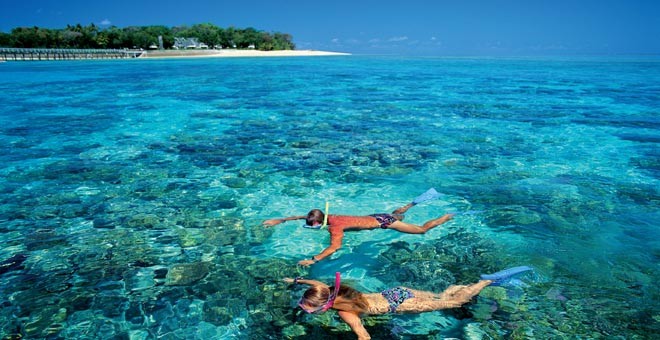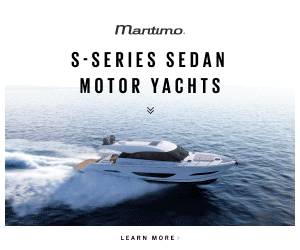Pew Group- Marine Parks 'a major contribution to ocean protection'
by Pew Environmental Group on 19 Jun 2012

Snorkelling the Great Barrier Reef SW
The Pew Environment Group has congratulated is Australian staff for its five years of lobbying for no-take zones and increased marine parks in the Coral Sea and other regions, hailing the Australian Federal Government's recent announcement as 'a major contribution to global ocean protection'.
13 June 2012
Dear Friends and Colleagues:
I have some very good news! The Australian government has just released its final marine plan for Australia´s exclusive economic zone. I am pleased to say that it includes a no-take Coral Sea marine national park of 503,000 square kilometers in area - which makes it the second largest marine reserve in the world after the Chagos and about the size of Spain (and 25 percent larger than California)!
The Coral Sea is one of the largest and most intact areas in the world's oceans, and is home to more than 80 species of sharks, rays, dolphins, and whales, as well as spectacular coral reef systems.
Over the past five years, our Australian staff have been leading a determined coalition of 15 Australian and international conservation groups in a challenging campaign to achieve protection for the Coral Sea.
While the outcome is not all that we would have wanted, it is a major contribution to global ocean protection. Earlier this year, almost a half million individuals voiced their support for strengthening the draft plan which resulted in significantly improved protection for some of the sensitive reefs of the Coral Sea.
This was our third successful project since the inception of Global Ocean Legacy (http://global%20ocean%20legacy/), including the Marianas Trench Marine National monument in 2009 (http://www.pewenvironment.org/campaigns/global-ocean-legacy-mariana-trench-marine-national-monument/id/8589941033), and the Chagos Marine Reserved in 2010
(http://www.pewenvironment.org/campaigns/global-ocean-legacy-chagos/id/8589940399) in addition to the Papahanaumokuakea Marine National Monument in 2006
(http://www.pewenvironment.org/campaigns/global-ocean-legacy-papahnaumokuke-a-marine-national-monument/id/8589941014), which collectively have added over 1,500,000 square kilometers of fully protected ocean.
I’m also pleased to report that our Pew Environment Group colleagues working in other coastal areas of Australia were successful in securing an additional 282,000 square kilometers of fully protected marine waters spread across sites along Australia´s southwest, north, and northwest marine regions.
These areas contain some of the world´s most diverse and unique sea life, including the habitat of thousands of fish and other marine species found nowhere else, and species such as blue whales and Australian sea lions.
Please let me know if you have questions. You can find more information
at: http://www.PewEnvironment.org/AustraliaMarine
Thank you.
Jay Nelson
Director Global Ocean Legacy
Pew Environment Group
175 South Franklin Street third Floor
Juneau, Alaska 99001 USA
P: +1 907.586.8000
twitter: pewenvironment
facebook: www.facebook.com/PewEnvironmentGroup
If you want to link to this article then please use this URL: www.sail-world.com/98662

